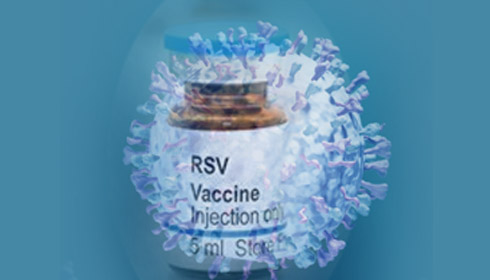
Early Pregnancy Administration if RSV Vaccine Offers Best Protection, Finds Study
In a significant advancement in maternal and infant health, researchers from Mass General Brigham have unveiled compelling findings that highlight the importance of immunising pregnant mothers against the respiratory syncytial virus (RSV) during the early stages of pregnancy. Research demonstrates that newborns receive optimal protection against this potentially severe virus through this timely intervention. Respiratory Syncytial Virus (RSV), known for causing moderate symptoms in adults while posing a serious threat to newborns, is now preventable through maternal vaccination. The American Journal of Obstetrics and Gynaecology recently published a study that reveals significant findings about the timing of the RSV vaccine during pregnancy. The research indicates that administering the vaccine at 32 weeks gestation enhances the transfer of protective antibodies from mother to fetus, highlighting an important aspect of maternal and neonatal health. This information holds significant importance for patients and healthcare providers alike.
Current guidelines prescribe the RSV vaccine for pregnant women between 32 and 36 weeks. However, new research shows that timing within this window is more than just a question of convenience. "Receiving the RSV vaccine during pregnancy is an essential way mothers can protect their newborns and infants from RSV, the leading cause of hospitalization for U.S. infants," said Dr. Andrea Edlow, senior author and maternal-foetal medicine specialist at Massachusetts General Hospital. "Our findings suggest that vaccinating earlier in this timeframe results in a stronger, more effective antibody transfer to the fetus."
The study included 124 women who got the RSV vaccine between weeks 32 and 36 and measured antibody levels in the umbilical cord and blood of two-month-old newborns. The study revealed that mothers who received the RSV vaccine at least five weeks prior to delivery effectively transmitted RSV antibodies to their newborns. On the other hand, those vaccinated closer to their delivery dates showed lower antibody transfer efficiency, suggesting that timing is crucial for maximizing infant protection.
This conclusion is especially important given the hazards that RSV poses to babies. RSV is the greatest cause of bronchiolitis and pneumonia in children under the age of one, and without maternal antibodies, infants are vulnerable throughout their first few months of life. Therefore, the timing of maternal immunisation could potentially decrease hospitalisations due to RSV, while also safeguarding small infants too young for direct immunisation.
A subsequent investigation examined antibody levels between vaccinated moms and a group of 20 unvaccinated mothers. The results showed that vaccinated individuals had significantly higher RSV antibody levels in both maternal and umbilical cord blood, implying that the vaccine not only increases protection at birth but may also maintain antibody levels into early infancy. The researchers suggest that these findings could influence the timing of administering the RSV monoclonal antibody, Nirsevimab, to neonates, as early maternal immunisation could potentially reduce or even eliminate the need for additional RSV protection at birth.
"This study provides invaluable data to help physicians advise their patients on RSV vaccine timing during pregnancy," according to Dr. Edlow. "By understanding the dynamics of antibody transfer across the placenta, we can make informed recommendations that give newborns the best chance for protection."
More research is necessary to determine the exact threshold of antibodies required for complete RSV immunisation in newborns, despite the promising findings. Furthermore, researchers are investigating whether breastfeeding by vaccinated mothers provides additional protection against RSV, potentially providing an additional layer of defense during early infancy.